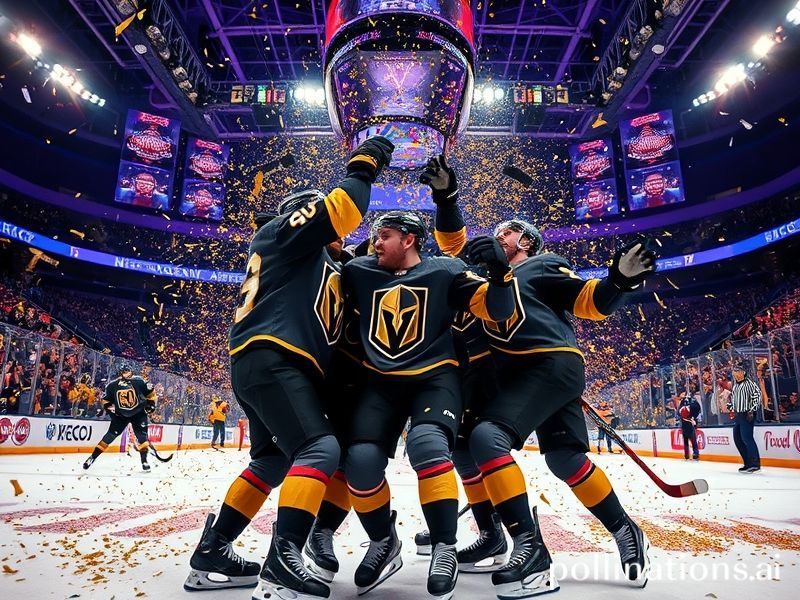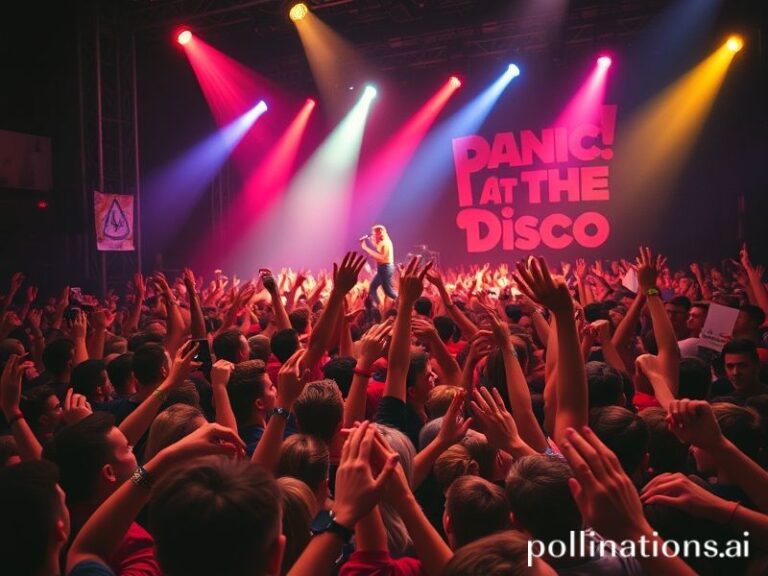Golden Knights, Inc.: How the World Repackaged Chivalry for Late-Stage Capitalism
The phrase “golden knights” once conjured images of armored crusaders galloping toward Jerusalem, pockets heavy with Byzantine coins they definitely intended to give back. Today the same words are brandished by everyone from a U.S. Army parachute team (who spell it “Golden Knights” and land in stadiums rather than on peasants) to gleaming cryptocurrency funds, a Malaysian esports franchise, and a Dubai-based private-security outfit whose LinkedIn page promises “discreet kinetic solutions.” In other words, the collective noun has become a floating signifier for whatever brand of modern chivalry is currently being monetized.
Global audiences first noticed the term’s inflation during the 2022 World Cup, when Qatar’s “Golden Knights Hospitality Programme” sold $12,000-per-match tents with air-conditioning that sounded like a C-17 on takeoff. Overnight, influencers who previously couldn’t spell “Doha” were posting selfies in gold-trimmed thawbs, captioning them “feudal vibes.” The irony was not lost on migrant workers from Nepal and Ghana who built the tents, many of whom had never seen a match ticket despite literally constructing the stage. Meanwhile in Washington, the Army’s parachute team filed a trademark objection—because nothing says “land of the free” like suing sheikhs over heraldic linguistics.
From an international-relations perspective, “golden knights” now operate in the same murky space as flags of convenience and shell companies: halfway between heraldry and money-laundering. Consider the Knights of the Golden Order, a blockchain-gaming DAO that raised $47 million in seed funding last year. Its white paper promises players can “earn honor as well as yield,” a phrase economists translate as “Ponzi with medieval cosplay.” The project’s Discord boasts 180,000 members from 42 countries, united mostly by the shared hope that somewhere, someone dumber will buy their pixelated halberds. The G20’s Financial Stability Board recently cited such ventures as “systemic risks dressed in nostalgia”—the first time bureaucrats have sounded like disillusioned Renaissance-fair dads.
Even warfare has gone bling. Turkey’s Baykar corporation markets the “Golden Knight” loitering munition (price tag: €2 million, batteries not included). Its promotional video shows drones destroying a column of tanks while a golden CGI knight gallops alongside, presumably to collect dog tags for NFT minting. The clip was retweeted by defense attachés from Poland to the Philippines, proving that if you want to sell ordnance in the 21st century, you’d better bring either a Marvel aesthetic or a crypto angle—ideally both.
Humanitarians, not to be outdone, have their own order: Médecins Knights Dorés, a French NGO that delivers vaccines in gold-foil pouches originally designed for foie gras. Their Instagram feed—run from a WeWork in Lisbon—features doctors posing like cover art for a synthwave album. It’s hard to argue with results: 1.3 million inoculations last year. Still, one can’t help noticing the branding budget eclipses several small countries’ health ministries, a fact the organization’s annual report lists under “Strategic Mythopoeia.”
Why this global rush to wrap ourselves in gilt armor? Perhaps because the old myths—progress, democracy, the rules-based order—have started to smell like leftovers. Recasting the future as a shiny medieval rerun lets us feel noble while still cashing in. The average citizen, scrolling between headlines of climate collapse and billionaire space races, finds comfort in the fantasy that somewhere a gallant knight—preferably one with venture-capital backing—is tilting at whatever dragon ruined the supply chain.
The joke, of course, is that real knights were mostly mercenaries whose armor was rented and whose loyalty expired with the next payroll. Swap chainmail for Kevlar, horses for helicopters, and feudal dues for subscription fees, and the picture sharpens into focus. We’re not witnessing a revival of chivalry; we’re watching the same old protection racket get a fresh coat of gold leaf.
So the next time you see “golden knights” trending—whether dropping from the sky, mining the blockchain, or carpet-bombing a procurement spreadsheet—remember the international rule of heraldic inflation: if everyone’s a knight, no one is, but the bill still arrives in 24-karat lettering.







